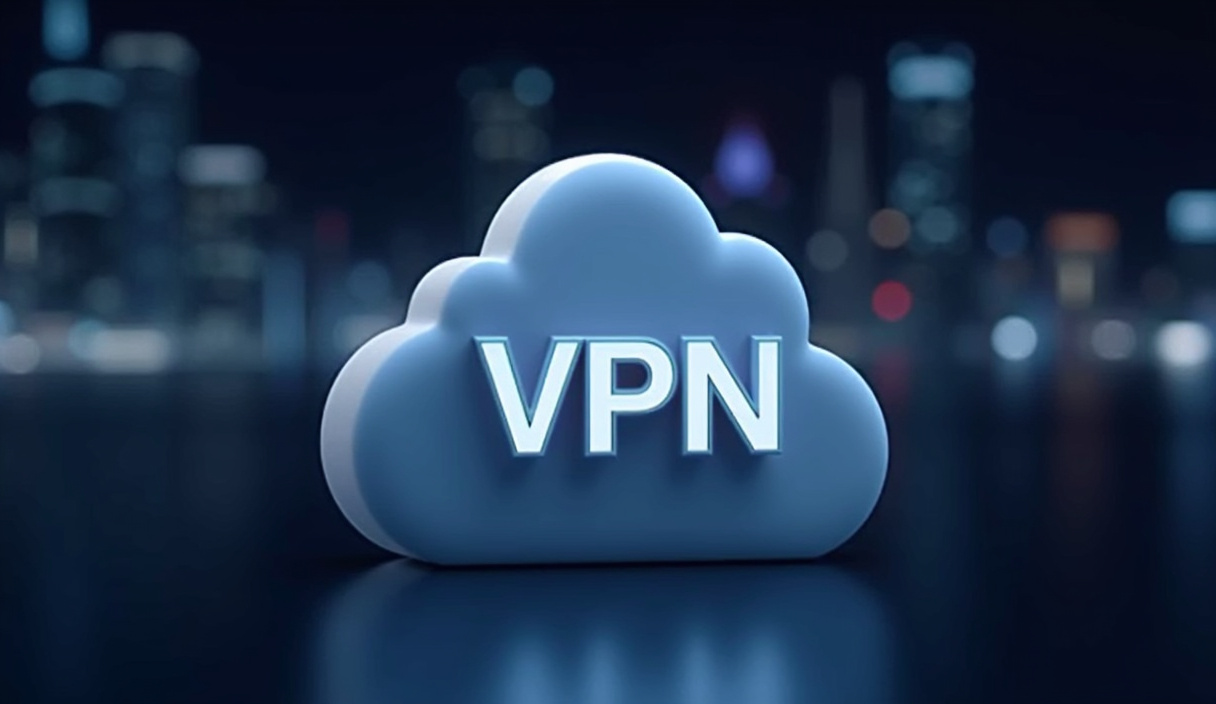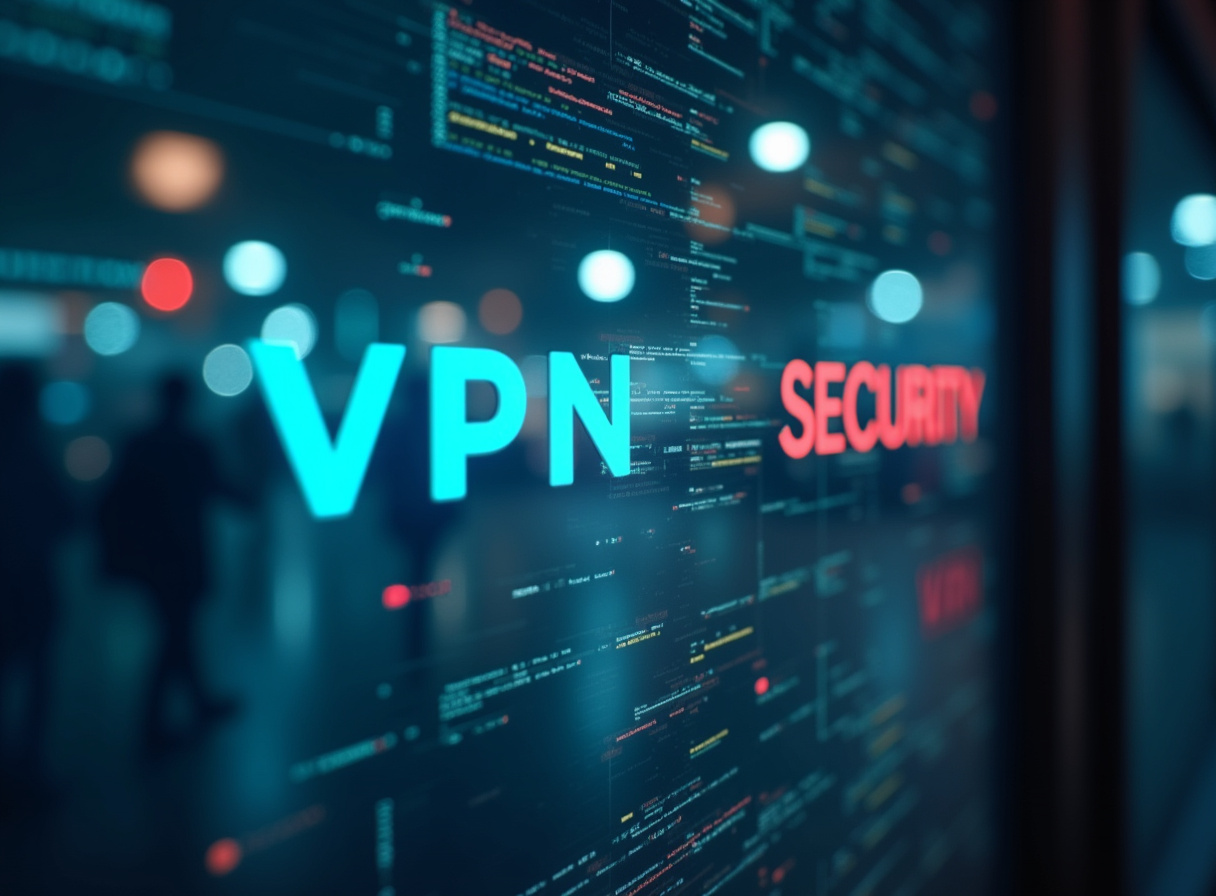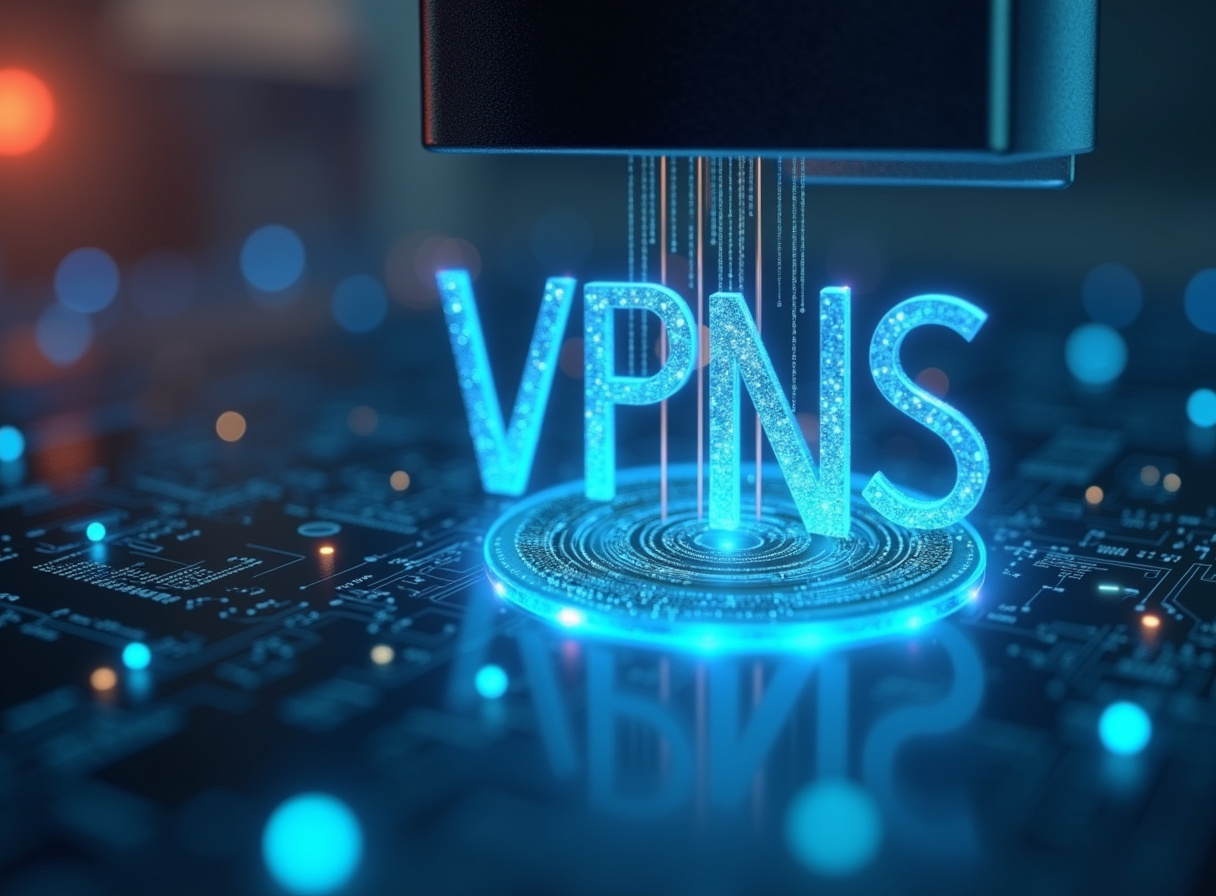VPNs in the Film Industry: Protecting Production Assets

Table of Contents
production protection
The film industry, a captivating world of storytelling, visual artistry, and immense financial investment, operates in an increasingly complex and vulnerable digital landscape. From the initial spark of an idea to the final cinematic masterpiece, every stage of film production relies heavily on digital tools and infrastructure. This reliance, while enhancing efficiency and creativity, opens doors to significant security risks.
Pre-production scripts, raw footage, post-production edits, and marketing materials – all are valuable assets that demand robust protection. Leaks, data breaches, and piracy can inflict devastating consequences, from financial losses and reputational damage to compromised artistic vision and delayed releases. A comprehensive security strategy is therefore no longer an option, but a fundamental necessity for any film project seeking to safeguard its intellectual property and ensure a smooth and profitable journey to the screen.
Enter the Virtual Private Network (VPN), a technology rapidly becoming indispensable for film productions of all sizes. A VPN provides a secure, encrypted connection for data transmission, essentially creating a private, protected tunnel through the public internet. This significantly hinders unauthorized access, making it considerably more difficult for malicious actors to intercept or steal sensitive production materials.
This article delves into the critical role of VPNs in fortifying across the film industry. We will explore their importance in safeguarding assets at every phase of filmmaking, from script development to post-production editing. By comparing various VPN implementation strategies and outlining best practices, we aim to provide filmmakers with the knowledge to make informed decisions about their infrastructure.
Understanding the nuances of different VPN solutions and how they address specific vulnerabilities is key to selecting the most effective tools for a particular project's needs. The film industry, by its very nature, often involves collaborations across geographical boundaries. Writers, directors, producers, editors, and visual effects artists may be scattered around the globe, necessitating the secure transfer of massive files containing footage, renders, audio mixes, and other confidential assets.
Traditional file transfer methods, often relying on unsecured FTP servers or unencrypted email attachments, present significant risks. A dramatically enhances the security of these transfers by encrypting the data stream, shielding it from potential eavesdroppers and guaranteeing the integrity of the files. Moreover, a VPN facilitates safe remote access to crucial production servers and internal networks.
This allows authorized personnel to contribute to the project from any location, whether it's a home office or a remote studio, without compromising sensitive data. Embracing a isn't solely about warding off external threats; it's also crucial for managing internal risks effectively. By implementing access controls and meticulously monitoring network activity, a VPN can prevent unauthorized internal access to sensitive information.
This is paramount in large production environments involving diverse stakeholders and fluctuating team members. Furthermore, the implementation of a VPN provides a comprehensive audit trail, meticulously documenting all network activity. This invaluable feature greatly simplifies the process of identifying and addressing potential security breaches promptly.
Implementing a comprehensive VPN solution should be a priority for any film production company serious about . The concept of goes far beyond mere encryption. It encompasses meticulous planning, strategic configuration, and continuous monitoring to ensure the VPN remains resilient against ever-evolving cyber threats.
The need for is not just a preventative measure; it is a vital element in protecting creative work and maintaining a competitive edge in this industry. Choosing the right type of can be a game changer in securing sensitive data and maintaining the integrity of the creative process.
VPN for filmmakers
The specific advantages of leveraging a extend beyond the basic benefits of data encryption. Imagine, for example, the inherent vulnerabilities surrounding pre-production materials like scripts, storyboards, and audition tapes. These highly confidential documents often circulate digitally amongst a diverse group of stakeholders, including writers, directors, producers, actors, and potential investors.
Without adequate security measures, these intellectual properties are highly susceptible to leaks, potentially leading to plot spoilers, creative theft, and even jeopardizing project funding altogether. By implementing a VPN, you ensure that these sensitive documents are only accessible to authorized personnel, significantly reducing the risk of unauthorized disclosure and protecting the creative vision from premature exposure. Moving beyond pre-production, the actual production phase introduces a fresh set of security challenges.
Data captured on set, which includes raw footage, behind-the-scenes recordings, and critical metadata, must be securely transferred and meticulously stored. Dailies, those crucial daily compilations of footage captured during production, are regularly shared with key team members for review and feedback. These dailies hold immensely sensitive content, showcasing unreleased scenes, actor performances, and intricate production details.
A robust VPN safeguards these materials by encrypting the data stream during transfer, effectively hindering unauthorized access and providing a fortified gateway to the secure production server where they are stored. This ensures that only those with the appropriate credentials can access and review the footage, maintaining on set and beyond. Furthermore, the adoption of cloud-based collaboration tools continues to rise within the film production industry.
Cloud services offer unmatched scalability, accessibility, and cost-effectiveness, but they simultaneously introduce a host of new security risks. Data hosted in the cloud becomes susceptible to unauthorized access, potentially exposing sensitive information to breaches and service interruptions. A well-configured VPN mitigates these risks by establishing a secure, encrypted connection between the production team and the cloud service provider.
This guarantees that data is encrypted while in transit and when stored at rest in the cloud, providing a crucial layer of . Selecting the right VPN solution requires careful consideration, focusing on features that directly impact and overall security. Factors such as encryption strength, connection speed, server locations, and security protocols should be prioritized.
It's crucial to understand that not all VPNs are created equal, and some offer vastly superior protection compared to others. Opt for a VPN that employs robust encryption algorithms, such as AES-256, and supports proven secure protocols like OpenVPN or WireGuard. This will create a nearly impenetrable shield around your data.
Equally important is the VPN provider's privacy policy. Seek out providers with a strict "no-logs" policy, meaning they do not track or store your online activity. This ensures that even if the VPN server were compromised, your sensitive data would remain protected.
An effective VPN, therefore, becomes an unseen guardian of your creative assets. The implementation of a should seamlessly integrate into the overall security strategy of the film production. This holistic approach includes conducting regular security audits to identify vulnerabilities, implementing stringent access controls to restrict data access, training personnel on security best practices to foster a security-conscious culture, and diligently monitoring network activity for any signs of suspicious behavior.
A proactive and multifaceted approach to security is paramount for effectively mitigating risks and safeguarding valuable production assets. The failure to prioritize and adequately protect film assets can result in devastating financial consequences. Leaked scripts can lead to pre-emptive piracy, draining millions of dollars in potential revenue from studios.
Stolen footage can surface online before the official premiere, severely diminishing the film's impact and profitability. In some instances, significant data breaches can even fuel legal actions and tarnish reputations permanently. A comprehensive plan, which includes a robust , represents a wise investment for any film production company aiming to safeguard its creative vision.
content safeguarding
The post-production phase presents its own unique set of security challenges within the film industry. This is the stage where the raw footage is meticulously transformed into a polished cinematic product. The film is edited, visual effects are crafted, sound design is implemented, and the final picture is assembled.
Post-production often involves a large and distributed team of artists, editors, and technicians working remotely from different locations, which inherently creates significant security vulnerabilities. Transferring terabytes of large video files, sharing intricate project files, and collaborating on complex edits necessitates a secure and reliable network infrastructure to ensure and prevent breaches. Without it, the entire project's integrity is at risk.
A VPN plays a crucial role here, creating encrypted tunnels for these data transfers and secure access points for remote collaborators. Imagine a scenario where a visual effects artist working from their home studio needs to access a secure server containing unreleased scenes. Without a VPN, the data stream between their computer and the server is vulnerable to interception.
A hacker could potentially gain access to the footage, leak it online, or even hold it ransom, causing significant financial and reputational damage to the production. A VPN encrypts this data stream, making it virtually impossible for unauthorized parties to decipher the information and compromise the assets. Beyond securing data transfers, a VPN can also protect against other types of cyberattacks that commonly target post-production facilities.
These facilities often store vast libraries of valuable footage, project files, and intellectual property, making them attractive targets for hackers looking to steal or extort sensitive information. A VPN can help prevent these attacks by providing an additional layer of security around the network and making it more difficult for hackers to gain access. Another critical aspect of post-production security is related to digital rights management (DRM).
DRM technologies are used to protect copyrighted content from unauthorized distribution. However, DRM systems themselves can be vulnerable to attacks. A VPN can help protect DRM systems by encrypting the communication between the post-production facility and the DRM server, preventing hackers from tampering with the DRM settings or circumventing the copyright protection measures.
Choosing the right for post-production requires careful consideration of several factors. Speed is paramount, as transferring large video files can be time-consuming and bandwidth-intensive. A VPN with fast connection speeds is essential for ensuring a smooth and efficient post-production workflow.
Security is, of course, also a top priority. The VPN should use strong encryption algorithms and support secure protocols to protect data from unauthorized access. Reliability is another important factor.
The VPN should be stable and dependable, ensuring that remote collaborators can always access the necessary resources without interruption. Finally, the VPN should be easy to use and manage. A complex and cumbersome VPN can create unnecessary headaches for the post-production team, slowing down the workflow and increasing the risk of errors.
Implementing a robust VPN solution is just one piece of the puzzle when it comes to in post-production. It's also important to implement other security best practices, such as strong passwords, multi-factor authentication, regular security audits, and employee training. By taking a comprehensive approach to security, post-production facilities can minimize their risk of cyberattacks, protect their valuable assets, and ensure the integrity of their work.
In summary, the post-production phase demands robust security measures due to the high value and sensitivity of the assets involved. A is a crucial component of a comprehensive security strategy, providing encrypted data transfers and secure access points for remote collaborators. By choosing the right VPN and implementing other security best practices, post-production facilities can protect their valuable assets and maintain a competitive edge in the industry.
The effectiveness of the chosen VPN depends not only on the service itself, but also on the expertise and vigilance of the IT professionals managing the infrastructure.
film VPN
Beyond the specific stages of film production, there are several overarching considerations when selecting and implementing a strategy. One of the most important is understanding the different types of VPNs available and how they align with the unique needs of the film industry. While personal VPNs are often marketed towards general consumers seeking privacy while browsing the internet, enterprise-grade VPNs offer a more robust and feature-rich solution specifically designed for businesses with more complex security requirements.
These enterprise VPNs often include advanced features such as centralized management, granular access control, and detailed logging and reporting capabilities, providing a far higher degree of for sensitive film assets. Another crucial consideration is the location of the VPN servers. Choosing a VPN provider with servers located in geographically diverse locations can offer several advantages.
It can allow the production team to securely access region-locked content, such as streaming services or online archives, that may be necessary for research or inspiration. It can also improve connection speeds by routing traffic through servers closer to the user's location. Moreover, having access to multiple server locations can provide redundancy in case of a server outage, ensuring that the production team can continue working without interruption; this is key to maintaining and operational continuity.
Scalability is another key factor to consider, particularly for large film productions with fluctuating team sizes and varying bandwidth demands. The VPN solution should be able to easily scale up or down to accommodate the changing needs of the project. This may involve adding or removing user accounts, increasing bandwidth capacity, or deploying additional servers as needed.
A flexible and scalable VPN solution will ensure that the production team always has the resources they need to work efficiently and securely. Furthermore, the integration of the with other security tools and systems is essential for creating a holistic security posture. The VPN should be able to seamlessly integrate with firewalls, intrusion detection systems, and other security technologies to provide a layered defense against cyber threats.
For instance, a VPN can be configured to work in conjunction with a firewall to restrict access to sensitive production servers, only allowing connections from authorized users who are connected to the VPN. Similarly, a VPN can be integrated with an intrusion detection system to monitor network traffic for suspicious activity and automatically block connections from potentially malicious sources. Choosing a VPN provider that offers robust integration capabilities will simplify the process of building a comprehensive and effective security ecosystem for .
When evaluating VPN providers, it's also crucial to consider their reputation, track record, and customer support. Look for providers with a proven history of providing reliable and secure VPN services. Read online reviews and testimonials to get a sense of other customers' experiences with the provider.
And make sure that the provider offers responsive and knowledgeable customer support in case you encounter any issues or have questions about the service. Selecting a reputable and trustworthy VPN provider is essential for ensuring the security and reliability of your solution. Ultimately, deploying a VPN is a long-term commitment that requires ongoing monitoring, maintenance, and updates.
Regularly monitor the VPN's performance and security logs to identify any potential issues or vulnerabilities. Keep the VPN software up to date with the latest security patches to protect against newly discovered threats. And periodically review the VPN's configuration settings to ensure that they are still aligned with the evolving security needs of the film production.
By taking a proactive approach to VPN management, you can ensure that it remains an effective tool for protecting your valuable film assets.
film VPN
Implementing a successful strategy goes beyond simply selecting and configuring the right technology. It requires a holistic approach that encompasses policy development, user training, and ongoing security awareness. A well-defined VPN usage policy is essential for establishing clear guidelines for how the VPN should be used by the production team.
This policy should address issues such as acceptable use, password security, data encryption, and incident reporting. It should also specify the consequences for violating the policy, such as suspension of VPN access or disciplinary action. By clearly outlining the rules of the road, a VPN usage policy helps to ensure that the VPN is used responsibly and effectively, reinforcing at every level.
User training is another critical component of a successful VPN implementation. The production team needs to be properly trained on how to use the VPN, how to troubleshoot common issues, and how to recognize and report potential security threats. Training should cover topics such as connecting to the VPN, verifying the VPN connection, using encrypted email and messaging, and avoiding phishing scams.
Regular refresher training should be provided to keep the team up-to-date on the latest security threats and best practices. A well-trained team is more likely to use the VPN correctly and to identify and report potential security incidents, greatly enhancing overall . Ongoing security awareness is also essential for maintaining a strong security posture.
The film industry is constantly being targeted by cybercriminals, and new threats are emerging all the time. It's important to keep the production team informed about the latest threats and to reinforce security best practices on a regular basis. This can be achieved through regular security newsletters, awareness campaigns, and simulated phishing exercises.
By fostering a culture of security awareness, you can empower the production team to be vigilant and proactive in protecting sensitive film assets, reinforcing the use of the as a critical tool in their daily workflow. In addition to policy development, user training, and security awareness, it's also important to establish clear procedures for incident response. In the event of a security breach, it's crucial to have a plan in place for quickly identifying, containing, and remediating the incident.
This plan should outline the roles and responsibilities of different team members, the steps to be taken to isolate the affected systems, and the procedures for reporting the incident to the appropriate authorities. A well-defined incident response plan can help to minimize the damage caused by a security breach and to restore normal operations as quickly as possible, and in some cases even prevent measures being overriden. Furthermore, it's vital to conduct regular security audits and penetration testing to identify any weaknesses in the VPN implementation.
Security audits can help to identify misconfigurations, outdated software, and other vulnerabilities. Penetration testing can simulate real-world attacks to assess the effectiveness of the VPN and other security controls. By proactively identifying and addressing vulnerabilities, you can strengthen the VPN's security posture and reduce your risk of a successful cyberattack.
In conclusion, safeguarding film production assets in today's digital landscape demands a comprehensive and multifaceted approach. Employing a robust solution is a cornerstone of this strategy, providing encrypted data transfers and secure remote access. However, the true effectiveness of a VPN lies not just in the technology itself, but in its seamless integration with a well-defined security policy, comprehensive user training, ongoing security awareness, and proactive incident response.
By embracing this holistic approach, film production companies can create a layered defense that effectively protects their valuable assets, ensures the integrity of their creative work, and maintains their competitive edge in an increasingly challenging and ever-evolving digital world. Remember that the best is the one that is not only technically sound but also well-integrated into the human element of security within the production team.
Stay Updated
Get the latest VPN news, tips, and exclusive deals to your inbox.




